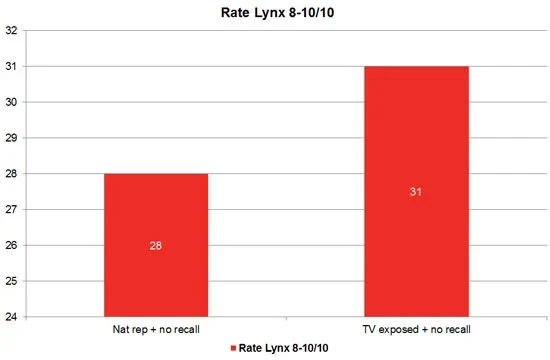YouGov CEO, Stephan Shakespeare, discusses the impact of ads even if viewers don't remember them.
A couple of weeks ago I promised that I would use this space to reveal a new discovery that would change the way we think about marketing. I can now share with you that we have discovered our own version of the Higgs Boson – the trace of a particle that shows there truly is a God of marketeers.
We are comparing the YGX to the Higgs Boson because it shows an effect that advertisers have always known must exist but remained unproven – that adverts influence perceptions and behaviours even when they have not been consciously remembered by consumers.
By monitoring precise media consumption patterns on a daily basis we can map specific survey respondents to advertising campaigns – recording whether people were watching the precise shows where the advertising was shown – and then examine their views on the brands whose adverts they watched.
The chart below shows views of Lynx among two groups who could not recall seeing the firm’s advertising. Of the nationally representative sample, 28% rate Lynx between eight and 10 out of 10; this rises to 31% among those we know were exposed to the TV campaign (but cannot recall it).

This gain is statistically significant and remains so when regression analysis is done to remove any other differences between the two groups. It is also worth noting that the difference between non-exposed and exposed would be even greater than shown as the nationally representative sample will contain those who have been exposed to the ad, thus pulling its score up.
We have seen this effect across a number of campaigns, but what does it mean for advertising? Firstly, advertising is working better than traditional means of evaluation would indicate – great news for advertisers, but the impact among those who can’t recall seeing the adverts means that those models cannot say which ads are working and which are not.
To do that you need connected panel data; merging precise media consumption with brand perception changes. By using this connected data you can then optimise campaigns and for the first time start to get to the bottom of the age old problem of knowing that half your advertising spend is wasted but not knowing which half.
Next week I will look at a specific campaign and show how marketeers can measure which ads are most effective. I have said it before but it bears repeating – whether it is in politics or in business, it is the data geeks who will inherit the earth.









